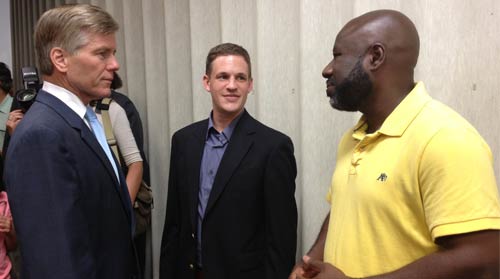NEW YORK — Darrell Gooden had wanted to vote in the historic 2008 presidential election, but couldn’t. As a former felon who was released a year prior, he had no right to cast a ballot under Virginia law. Today, all of that has changed — for Gooden, and thousands of other ex-felons living in the state.
Last week, Virginia’s Republican Governor Robert McDonnell announced a policy to automatically restore voting rights for nonviolent felons who have served their time.
“All of a sudden, I feel like I’m a U.S. citizen again,” said Gooden, 40, who was convicted of marijuana and cocaine possession in 2002 and served nearly five years in prison. “I can’t believe this is really happening.”


Virginia had been one of four states, including Iowa, Florida and Kentucky, where voting rights were not automatically restored once a felon completed his or her prison time, parole or probation.
The change could affect potentially hundreds of thousands of people, especially African Americans, who make up about two-thirds of the state’s prison population.
Although civil rights advocates called the move “a huge milestone,” the state faces challenges in ensuring all eligible ex-felons benefit from the policy, which takes effect next month.
“There’s still a lot to be done, a lot of community outreach to let these people know about the process,” said Tram Nguyen, deputy director of Virginia New Majority. “The biggest challenge is finding them.”
In order to reinstate voting rights, the administration first needs to verify that the person convicted of a nonviolent felony has completed his or her sentence and probation or parole, and has paid all court-imposed costs, fines and restitution to victims. Then, the governor will send the person a letter reinstating the rights, given that the individual has no pending felony charges.
To read more on this story visit New America Media.
